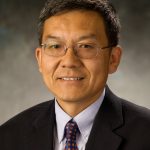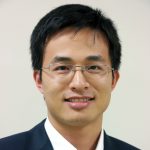Project Summary
Prediction and estimation of energy consumption of manufacturing processes are very important for the optimization of energy use in manufacturing. This task will focus on energy consumption models of varying fidelity to be used as test beds for the development and first-level application for the work in Tasks 2-4. The need for varying fidelity and multi-level process models stems from the varying computational burden of the optimization and control algorithms of the subsequent work. Overall, this task will focus on the following activities:
• The energy consumption as a function of either rate of metal removal (machining or electric discharge machining) and rate of material deposition (additive manufacturing) will be modeled and analyzed. These models will be incorporated into the available in-process planning and monitoring algorithms and used as the basis for this work. The energy consumption models can estimate the used energy at each stage of the manufacturing process (idle, setup, full operation, post-processing, frictional energy losses etc.). The task sequence and scheduling of the process will be modeled as a mixed integer non-linear program. (subtask 2.1)
• Surrogate modeling and symbolic model reduction techniques will learn manufacturing energy models to various levels of fidelity. Hybrid model architectures combining reduced-order physics-based models and machine learning algorithms will be derived for compensation of uncertainty and inclusion of heterogeneous data in the manufacturing model. (subtask 2.2)
• Integrate manufacturing component models of the manufacturing process with system-level models of Task 1, including their sensors, local regulatory controls, requirements for energy efficiency, safety critical system parameters and operational objectives. (subtask 2.3)
• Appropriate software (e.g., Abacus, Dymola, Simulink) will be used to develop the modeling framework for this project. Modeling environments will be consistent with the framework set by the SM Platform and will emphasize reusability and scalability. The Kepler engine and the Functional Mockup Interface will be used to connect the various modeling and optimization environments and create envelopes for model integration and exchange. Models, optimization algorithms, control architectures and manufacturing data will be integrated in IT/OT platforms provided by the SM Platform, which this project aims to augment with modeling approaches and toolchains relevant to subtractive and hybrid manufacturing. (subtask 2.4)
• All the models will be validated against the test beds operated in CCAT. (subtask 2.5)
Project Sponsor
Clean Energy Smart Manufacturing Innovation Institute
Investigators

George Bollas
Dr. George Bollas is the Director of the Institute for Advanced Systems Engineering (IASE) at the University of Connecticut. He is an Associate Professor with the Department of Chemical and Biomolecular Engineering at the University of Connecticut, a process design expert and winner of the prestigious NSF CAREER Award and the ACS PRF DNI Award. He received B.E. and Ph.D. degrees from the Aristotle University of Thessaloniki in Greece and then worked as a postdoctoral research associate at the Chemical Engineering Department of MIT. At UConn, he is leading efforts to develop and explore novel system representations (steady state and dynamic models) of thermal fluid systems (TFS) in equation-oriented environments that allow system dynamic optimization, sensitivity and uncertainty analysis, fault detection and optimal control. Dr. Bollas is also the director of the Process Design Simulation and Optimization Laboratory (PDSOL). The lab pursues a balanced approach to experimentation guided by robust modeling and simulation of chemical processes, including experimental design, process scaling and control.

Changsheng Guo
Dr. Changsheng Guo has been with the United Technologies research Center (UTRC) since 1999 where he is currently an Associate Director and Project Leader with the United Technologies Research Center (UTRC) where he leads projects in developing and implementing advanced manufacturing technologies for aerospace manufacturers.
Changsheng and team have developed software tools based on manufacturing process physics. The software tools for machining and grinding have been implemented in production and demonstrated more than 50% cycle time reduction.
Changsheng received his Ph.D. in mechanical engineering and MBA from University of Massachusetts, a Master's degree in manufacturing engineering Northeastern University in China. Before joining UTRC, Changsheng was a research Fellow at the University of Massachusetts, the Technical Director of a ceramic machining company, and an assistant professor in Manufacturing at Northeastern University in Shenyang, China.
Dr. Guo’s research focus has been on the fundamentals and applications of manufacturing processes such as machining, grinding, and metal forming. He has more than 80 published papers, co-authored one book, and 20 patents. Changsheng is a member of the CIRP (International Academy for Production Engineering), a Fellow of SME, an associate editor for the Journal of Machining Science and Technology. Changsheng received numerous awards such as the prestigious F. W. Taylor Medal of CIRP and the ASME Blackall Award.

Timothy Wagner
Over thirty years in leading/directing research, development and demonstration (RD&D) projects in thermo/fluids technology and building energy systems; Last three years led technology development
efforts for the DOE’s Energy Efficient Buildings Hub; Twenty-six years as Adjunct Assistant Professor for Rensselaer Polytechnic Institute at Harford, CT teaching Masters-level classes in heat transfer, fluid dynamics and propulsion.

Xu Chen
Dr. Xu Chen received his M.S. and Ph.D. degrees in Mechanical Engineering from the University of California, Berkeley in 2010 and 2013, respectively, and his Bachelor’s degree (with honors) from Tsinghua University in 2008. From 2013 to 2014, he was an invited lecturer at UC Berkeley. In 2014, he joined the faculty of the Department of Mechanical Engineering at the University of Connecticut. His research interests include digital control, learning control, adaptive and optimization-based control, with applications to advanced manufacturing, mechatronics, and precision engineering. He is currently leading the Manufacturing Automation and Control Systems Laboratory in designing laser-based additive manufacturing systems and high-speed vision-based servos. Dr. Xu Chen is a recipient of the Young Investigator Award in 2014 ISCIE / ASME International Symposium on Flexible Automation and the 2012 Chinese Government Award for Outstanding Students Abroad.

Liang Zhang
Dr. Liang Zhang is an Assistant Professor with the Department of Electrical and Computer Engineering at the University of Connecticut. He received the B.E. and M.E. degrees from the Center for Intelligent and
Networked Systems (CFINS), Department of Automation, Tsinghua University, Beijing, China, in 2002 and 2004, respectively, and the Ph.D. degree in Electrical Engineering – Systems from the University of Michigan, Ann Arbor, USA, in 2009. Before joining UConn, he was with the Department of Industrial and Manufacturing Engineering, University of Wisconsin-Milwaukee from 2009 to 2013. His research interests include mathematical/simulation modeling, analysis, and control of stochastic networked systems with applications to manufacturing and service systems, battery management systems, resiliency in cyber-physical systems, and human-robot collaborative systems. His research has been supported by the National Science Foundation, General Motors, Johnson Controls, MillerCoors LLC, etc.

Ashwin Dani
Dr. Dani received his M.S. and Ph.D. degrees from the University of Florida (UF), Gainesville, FL, USA where he was a part of the Nonlinear Controls and Robotics group in the Mechanical and Aerospace Engineering department. He was a Post-Doctoral Research Associate at the University of Illinois, Urbana-Champaign, IL, USA. In 2013, he joined the faculty of Electrical and Computer Engineering (ECE) as Assistant Professor at the University of Connecticut, Storrs, CT, USA, where he is currently an Associate Professor. His current research interests include machine learning for control, human-robot collaboration, and perception. Dr. Dani serves as a member of the conference editorial board of IEEE Control Systems Society (CSS). His work has been recognized by the Tammy L. Blair Best Student Paper Award—1st runner up in 2016, ASME Dynamics Systems and Controls Conference Best Student Robotics Paper Award in 2015, IEEE CSS Video Contest Award in 2015, UConn’s Outstanding Teaching Award from ECE in 2015 and AAUP-UConn Chapter’s Teaching Innovation Award. Dr. Dani’s research interests are: estimation and control, human-robot collaboration, machine learning for control, perception and robotics for manufacturing and space applications.

Thomas Maloney
Dr. Thomas Maloney has been into electrochemical power and energy storage systems since the beginning of his career. He is an executive level technologist who brings thought leadership and over 30 years experience in alternative energy and advanced manufacturing technologies for military, aerospace and commercial applications. As Skyre’s VP, Tom leads applied research and development activities aimed at near-term commercialization, including hydrogen energy conversion technologies, carbon dioxide capture and conversion, and advanced design.
Dr. Maloney has honed his skills over the years, drawing from an extensive array of experiences. While at Proton Energy Systems, he worked on designing and manufacturing hydrogen generation and fueling systems. Later at United Technologies, he was the Technical Lead for a 100+ person team that developed a fuel cell powerplant for the Spanish Navy S-80 submarine.
He then went on to lead a $75M USAF initiative to develop and insert advanced manufacturing technologies into the American supply chain as well as lead a $20M Department of Defense program for deriving clean liquid fuels from coal, biomass and waste feed sources.